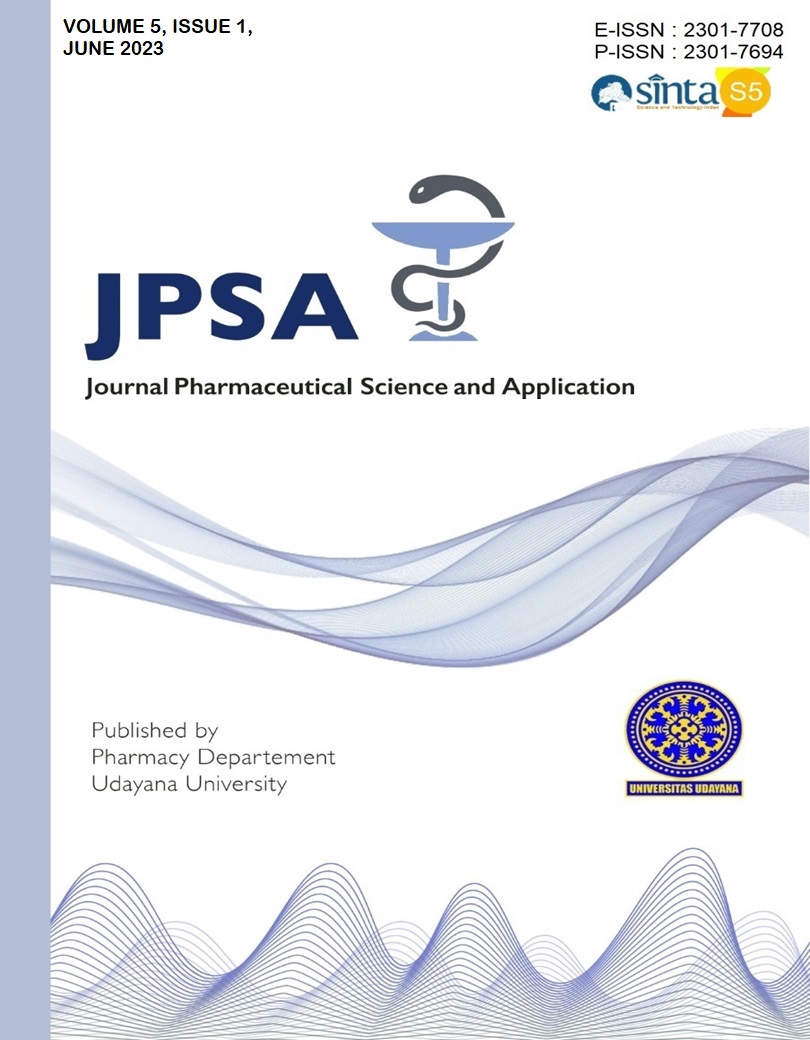DRUG MANAGEMENT EVALUATION THROUGH EXPIRED DRUG PROFILE ANALYSIS AT “X” HOSPITAL IN BALI
Abstract
Background: One of the most important hospital management in the provision of health services as a whole is drug management. Remember the important position of drugs for hospitals; their management must be carried out effectively and efficiently because if they do not, they can have a negative impact on hospitals, both medically, socially and economically. Drug management is crucial in the drug management cycle to determine drug stocks that suit the needs of health services with guaranteed quality and can be obtained when needed. One of drug management is by controlling expired drugs. Medicines that have passed their expiry date can be dangerous because they reduce the stability of the drug and can cause toxic effects. Objective: This study aims to describe drug management in terms of expired drug profiles and determine the factors that influence the number of expired drugs in "X" Hospital. Methods: Research in the form of observational research with a descriptive approach. The samples used are all expired drugs in the warehouse and have not been destroyed. Factors affecting the number of expired drugs were observed by interview. Results: The results of the study show that the percentage of expired drugs in the period 2019 to 2022 is obtained from the loss value and inventory management value of 0.11%, respectively; 0.18%; 0.14%; and 0.93%. Expired drugs were also classified based on the ABC analysis, with the highest number in group C with 137 items; in the VEN analysis, the essential medicines group with the highest number of 122 items; and in the ABC-VEN combination analysis, the EC group occupied the highest rank. The existence of expired drugs is caused by several factors, including the influence of information systems, human resources and methods of recording drugs that are still manual. Conclusion: The management of expired drugs in the pharmaceutical installation of "X" Hospital is quite good because the percentage is still under control because it is less than 2%.
Keywords: Drug management; Evaluation; Expired drugs
Downloads

This work is licensed under a Creative Commons Attribution 4.0 International License.
Authors who publish with this journal agree to the following terms:
Authors retain copyright and grant the journal right of first publication with the work simultaneously licensed under a Creative Commons Attribution License that allows others to share the work with an acknowledgment of the work's authorship and initial publication in this journal.
Authors are able to enter into separate, additional contractual arrangements for the non-exclusive distribution of the journal's published version of the work (e.g., post it to an institutional repository or publish it in a book), with an acknowledgment of its initial publication in this journal.
Authors are permitted and encouraged to post their work online (e.g., in institutional repositories or on their website) prior to and during the submission process, as it can lead to productive exchanges, as well as earlier and greater citation of published work. (See The Effect of Open Access).

This work is licensed under a Creative Commons Attribution 4.0 International License.


 HOME
HOME
















